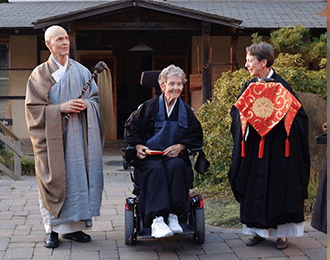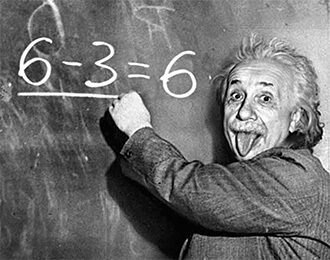What is a medical power of attorney?

FREE WILL – Updated for October 2021
Author: FREE WILL Affiliate
A medical power of attorney (or healthcare power of attorney) is a legal document that lets you give someone legal authority to make important decisions about your medical care. These decisions could be about treatment options, medication, surgery, end-of-life care, and more. The person you name in your POA to make these decisions is called your healthcare agent or proxy.
We never know when something unexpected could happen to us, like a sudden injury or illness. With a medical power of attorney, you’re creating peace of mind for yourself and your loved ones by choosing someone you trust to make important decisions for you in the event you’re unable to.
When creating a medical POA, most people choose to make it durable. Having a durable medical POA means your agent’s authority to act on your behalf continues if you’re incapacitated — meaning you’re unable to communicate your wishes. Your agent would be able to make medical decisions for you during a time you’re unable to speak for yourself. Many courts assume a medical POA is durable by default, but it’s best to be explicit when writing your document.
Depending on where you live, medical POAs might also be called:
- Power of attorney for healthcare
- Advance directive
- Advance healthcare directive
- Medical power of attorney directive
A medical power of attorney is just one type of POA.
When does your medical POA take effect?
A durable medical POA takes effect as soon as you’re incapacitated. This could include if you:
- Were under general anesthesia
- Had an illness that left you unable to communicate, such as a stroke
- Had an accident that left you in a coma or unconscious state
- Suffered from Alzheimer’s or another form of dementia that impacts your ability to make rational decisions
Why do you need a medical power of attorney?
There are many reasons why it’s a good idea to create a medical POA before you need it. Here are the top reasons you may want to consider:
To create peace of mind.
If you ever become too ill or injured to direct your own care, your loved ones may have to step in and make decisions for you. If you don’t have a medical POA, this typically requires a court proceeding, which can take time and cost money. Your loved ones could also be left trying to guess what kind of care you want, causing stress during an already painful time. By appointing a trusted person to act as your healthcare agent before you actually need one, you can create peace of mind for yourself and your loved ones.
To prepare for a major medical procedure.
If you’re planning for a surgery, you may want to select a healthcare agent to make medical decisions for you since you can’t give consent while under anesthesia. If you like, you can revoke the power of attorney after you recover.
To address concerns after being diagnosed with a degenerative disease.
Alzheimer’s, cancer, ALS, and Huntington’s disease are all conditions that will eventually make it impossible for you to understand or consent to medical treatment. After diagnosis, you may want to create a medical power of attorney while you’re still feeling well and can communicate your wishes for your care.
What can your healthcare agent do?
Your healthcare agent is legally required to act in your best interests. How much authority they have over your medical care is up to you. You could write your POA in a way that allows your healthcare agent to make any decision about your medical care. Or, you can establish limitations and timeframes on your agent’s power.
If you so choose, you can allow your healthcare agent to decide:
- What medical care you receive, including surgery, medical treatments, medications, and home healthcare
- The facilities where you receive your medical care
- The doctors and other providers who oversee your medical care
- Where you live, including assisted living, nursing homes, or residential long-term care
- Who cares for your everyday needs, such as eating and bathing
If you’ve named a separate financial power of attorney to oversee your finances, your healthcare agent will likely work with them to make sure you can afford the care chosen for you.
Medical power of attorney vs. guardianship
A medical power of attorney allows you to plan for your future medical care, in the event you’re ever unable to make decisions for yourself. Meanwhile, a guardian is a person who’s legally responsible for ensuring all your needs are met, from medical care to emotional wellbeing. A guardian would only become relevant for you as an adult if you were incapacitated without a medical POA. If this happened, the court may step in to appoint a guardian for you.
Medical power of attorney vs. living will
A living will is a legal document that lets you outline your end-of-life healthcare preferences in case you’re unable to communicate them. This includes medical treatments and medications you’re willing (or unwilling) to receive.
A medical power of attorney, on the other hand, is a legal document that lets you appoint a healthcare agent to make decisions about your medical care for you.
These two documents can work together: if you have a living will and a medical POA, then the decisions your healthcare agent makes must align with the wishes in your living will. Living wills and medical POAs can be combined into a single document, known as an advance healthcare directive.
Medical power of attorney vs. financial power of attorney
A financial power of attorney lets you give someone legal authority to make financial decisions in the event you’re unable to. This can include managing finances, defending lawsuits, and paying bills.
A medical power of attorney, on the other hand, only allows your agent to make decisions about your medical affairs.
How to create your medical power of attorney
Here are the basic steps to make your medical POA:
- Decide who you want to be your healthcare agent. Your agent will have a lot of authority, so you should choose someone you trust to have your best interests at heart. It’s a good idea to speak to this person beforehand and make sure they’re willing to be your agent.
- Decide which healthcare decisions you want your agent to be able to make.
- Get a medical power of attorney form. Most states provide blank POA forms for free, but it’s not always easy to customize them or include detailed preferences. You can also use free online software to create a living will, which includes a healthcare power of attorney.
- Complete the form, and sign and witness it according to the laws in your state. In most states, you’re required to get your POA form notarized. Some states also require additional witnesses, or the signature of your agent.
- Give a copy of your medical POA form to your agent and other interested parties, like your medical office. Your agent will need to provide the form as proof of their position before they’re allowed to make any healthcare decisions for you.
- Keep your medical POA form in a safe place with your other estate-planning documents. This could be in a fireproof safe in your home, a safe deposit box, or at a trusted attorney’s office.
- Update your medical POA as your circumstances change.
You aren’t required to use a lawyer to create your medical POA. However, you may find it useful to consult with one to make sure your POA covers all your needs.
How to revoke a medical power of attorney
You can revoke or cancel your medical POA at any time, as long as you’re considered mentally capable of doing so. To revoke your medical POA, you can fill out a revocation of power of attorney form, and have it witnessed and notarized. This document indicates that you no longer want your chosen agent to act as your medical POA. You can also create a new medical POA document and name a new healthcare agent, or change your current agent’s responsibilities.
Once you’ve created either of these documents, you should notify your original healthcare agent in writing to let them know you’re revoking their power of attorney. You should also reach out to third parties who have your POA on file, like your medical office, to let them know about the revocation.
A medical power of attorney creates peace of mind
None of us can predict the future. With a medical power of attorney, you can make sure you and your loved ones are prepared for any medical situation that may arise.





